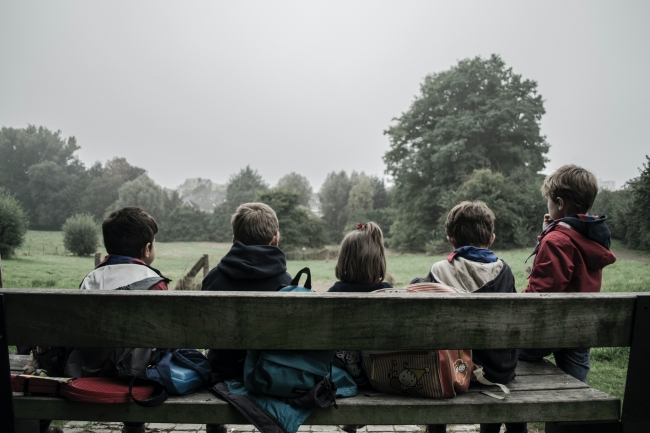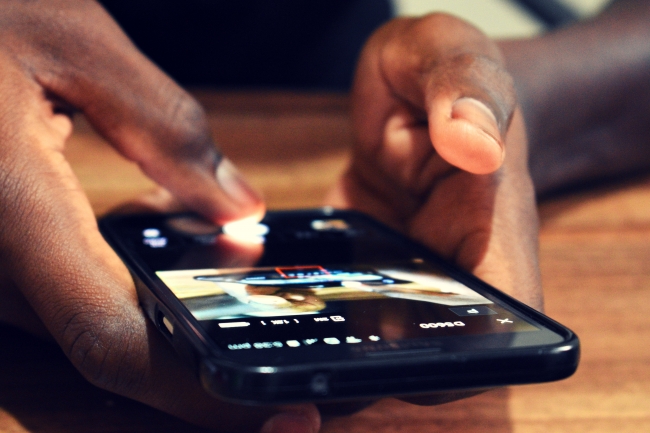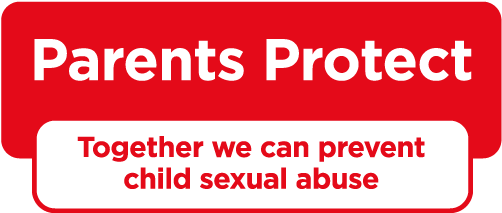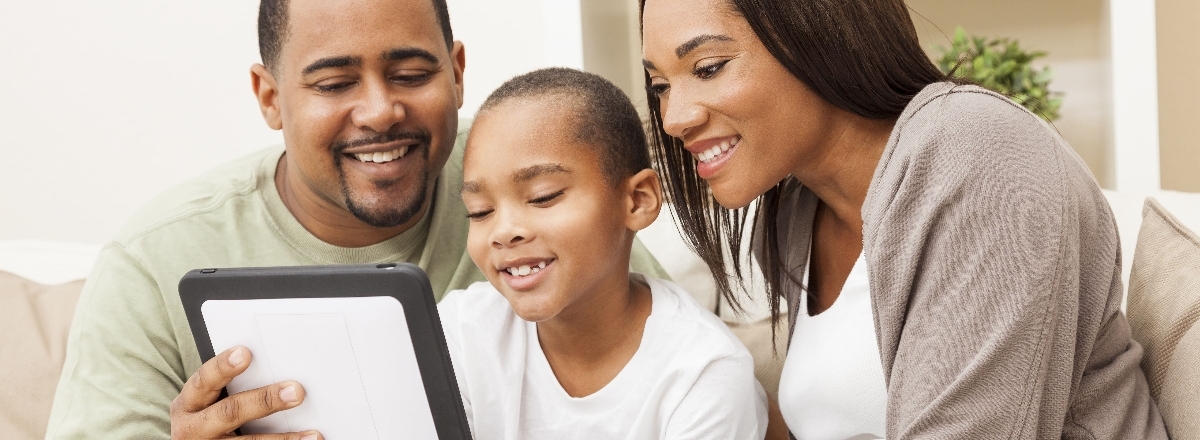WHAT ARE NUDES AND SEXUAL SELFIES?
Sexual interactions between teens might happen through texts, social media and direct messages. This can include sharing naked pictures (nudes) or other sexual selfies.
Nudes or sexual selfies are videos and pictures that might show someone semi-nude, showing their genitals (sometimes called “dick pics” or “tit pics”), or posing in their underwear. Sometimes this is called sexting.
WHY DO PEOPLE SEND NUDES AND SEXUAL SELFIES?
Young people are growing up in an online world. The internet can help them learn and understand themselves, their bodies and the world. It can help build relationships and understand more about their sexuality and develop their identity.
Not all young people share nudes. Research with young people in the UK reported:
- Around 1 in 6 young people aged 15 and over had shared a nude or sexual image of themselves
- Around 1 in 24 13-year olds said that they had shared sexual images of themselves
It is more common for vulnerable young people to send sexual images, including those in care, with eating disorders, young carers, those with speech or hearing difficulties or those with difficulties at home.
There are many reasons why children and young people might send sexual images or messages:
- they are in a relationship and want to prove their love or commitment to each other
- to explore sexuality, trust, boundaries and intimacy
- it might feel like ‘everyone is doing it’ because of what they have seen in their friendship group and in music, films, TV and social media, so think that it is expected
- trying to impress or be accepted by peers
- they may have been pressured into sharing a sexual image, either through direct threats or harassment from another young person or an adult
WHAT ARE THE RISKS OF SENDING NUDES AND SEXUAL SELFIES
Young people can be affected by the internet differently, and some are at risk of being exploited online. Some young people feel pressure from their peers to go along with sexual behaviours they are not ready for. Sometimes sexual images of a young person can be shared with other people without their consent. Girls, in particular, often experience harassment, sexual bullying and abuse from strangers or peers online.
Children and young people can sometimes feel additional pressure to share sexual images, even when they’re not comfortable doing so, because:
- someone says they ‘owe them’
- they’re worried that they won’t be liked if they don’t do it
- someone repeatedly asks for images and they want the person to stop
- they don’t want to upset someone
- they’re worried about being in trouble if they don’t do it
- someone offers them money, gifts or praise for doing it
- someone threatens to send their family or friends other sexual pictures they have of them
WHAT TO DO IF SOMETHING GOES WRONG
If you have any worries, it’s best to trust your gut and get support. Our anonymous helpline (0808 1000 900) is here for anyone with concerns about sexual risks to children. If you’re not ready to speak to someone yet, you can send us a secure message or use our live chat.
If your child feels like they are being forced to send sexual pictures of themselves or someone else, it’s important to listen to their concerns and support them. Explain that it is not their fault, you are glad they have told you, and that you are there to support them.
If you think your child has been manipulated into sending a sexual image by someone online, you can make a report to CEOP.
WHAT TO DO IF A SEXUAL IMAGE OF YOUR CHILD HAS BEEN SHARED ONLINE
If your child has shared a sexual image of themselves and it has been posted online or sent to other people, they may feel distressed, anxious and frightened. It is vital to be aware of this and reassure them that you can help them.
It’s important to find out exactly what has happened, where the image has been shared online and if there has been any attempt to remove it.
REPORT REMOVE CAN HELP GET THE NUDE TAKEN DOWN
If someone is under 18 and a sexual photo or video of them has been shared online, Childline and the Internet Watch Foundation can help them get it taken down. Find out how here.
If your child is sharing sexual selfies of themselves with strangers or adults online, they may be at risk of being groomed. To learn more about this and how to protect your child, check out our grooming page. You can report any grooming concerns to CEOP.
HOW TO TALK TO YOUR CHILD ABOUT SEXUAL SELFIES
- Don’t wait until your child has made a mistake. Let them know that they can share their concerns at any time and you won’t be upset or angry with them if something has happened.
- If you find out that your child has been sharing sexual images of themselves, this is an opportunity to talk about relationships, consent and how to make good choices online. If you are unsure of how best to respond, let your child know that you need time to think about it to give them the best advice you can. Call the Stop It Now! helpline (0808 1000 900) for advice on how to discuss this topic.
- Remember that young people are still learning and growing, and can and do make mistakes. It is brave for a child to tell a parent or carer that they have sent or received nudes and they need help to know how to respond to the situation. Jumping straight to punishments or restricting their online access can lead to young people feeling frightened about going to their parents for advice and support, when they need it most.
- Sometimes, young people feel too embarrassed to speak to their parents about sex. Read our blog post on how to start conversations with your children about sex and relationships and where they can go for additional support. Thinkuknow has a great series of short videos on how to talk to children about nudes and what to do if you have any concerns.
- Be clear with your children that taking, having and sharing sexual selfies of anyone under 18 is against the law, even if they feel everyone involved has consented.
- Remind your child that once an image or video is sent they can’t get it back. Talk with them about how they might feel if their photo was shared on and seen by others.
- If they are asked to send a sexual selfie, talk to your child about having some responses ready to say no.
- Help your child understand what they can or should do if they receive a sexual image of another young person from someone else. They should speak to an adult they trust for advice and support about what to do. Depending on the context, they could delete the image or tell an adult who can help make sure the child in the image is safe. They must never send it to others, including to their parent or school as “proof”, because these people would then be in possession of an illegal image.
- Discuss the influence of peer pressure, how it can be a powerful force and can make sending nudes feel normal for young people. Make sure your child knows that you understand they could be persuaded or forced into sending something. Talk to them about ways to resist peer pressure and make positive decisions. Childline has some helpful advice on coping with pressure from friends.
- Explore what healthy loving relationships should look like, to help children and young people recognise when things aren't right. Brook has a great blog post that you can use as a conversation starter.
WHERE TO GET HELP
For more information on how to talk to children about sexual selfies and messages and what to do if your child has got in trouble, have a look at the below organisations.
Childline has a confidential helpline (0800 1111) for children and young people to talk through any concerns as well as online resources and information.
Internet Matters has vital information for children and parents on how to stay safe on the internet and also what to do if something upsetting or distressing happens.
Brook has free and confidential advice and support for young people on sex and relationships as well as information on wellbeing and health.
Thinkuknow has tailored information for children of different ages to help them protect themselves online and offline, including advice about sex, relationships and the internet.
Childnet has online safety guides which offer help, advice and resources for parents and carers

Online safety
It's not always easy to know how to help keep children safe online. Our guide will help parents and carers to understand more about the digital world and how to prevent harm from taking place.
Learn More
What to do if your child gets into trouble online
It's not always easy to know how to help keep children safe online. If your child gets into trouble online, our guide can help support them.
Learn More
